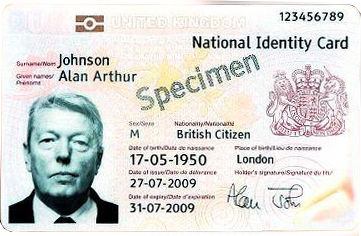Britain's deregulation
| Ken Clarke - author of the Deregulation Bill |
The Government has released the text of the Deregulation Bill, which seeks to simplify regulation across a wide range of industries and professions – everything from driving instructors to sellers of knitting yarn to insolvency practitioners. Hidden away at section 51 of the Bill is a provision allowing a Minister of the Crown to order that “legislation shall cease to apply if the Minister considers that it is no longer of practical use.”
I suspect that this is probably the most significant
power a Minister has ever sought to take for himself in British history.
Currently, if the Government wish to dis-apply a piece of
legislation they must pass an Act of Parliament that abolishes the previous
law. This is because Parliament is the
supreme law maker so if Parliament makes a law then only Parliament can unmake
that law.
As the anti-Europe brigade in the Conservative party
regularly reminds us their problem with Europe is that it undermines the
supremacy of Parliament, which they say is of utmost importance to our
democracy. So it is surprising that the
same Tory party now seeks to undermine the supremacy of Parliament by allowing
a Minister to override Parliament and dis-apply a piece of primary legislation.
I’m sure it would never be used say to benefit political donors
of course.
A few years ago the Government sought to increase the
time a terror suspect could be held by police before charge from 14-days to
90-days. There was outcry and Parliament
defeated that attempt. Had clause 51 of
the Deregulation Bill been in force at the time a Minister of the Crown could
have chosen to unilaterally dis-apply the parts of the Police and Criminal
Evidence Act 1984 that deal with the time a suspect can be held leaving a
situation where there is no time-limit at all!
Had they not been totally crazy they could have then amended the Police
Codes of Conduct, which is already within the Minister’s power, to impose their
90-day limit, all against the will of the supreme law maker that is Parliament.
I grant you that this sounds far-fetched but civilised
nations turned into barbaric dictatorships within living memory! While laws alone won’t stop an armed group
taking power and replacing those laws; a strong set of laws can help people who
oppose the barbaric regimes coming to power in the first place. I can’t help thinking that had ordinary
Germans paid more attention to the plans of Hitler before he took complete
control of Germany then his rise could have been averted.
Leaving that aside, what’s the next logical step once
this law is passed? After a couple of
years why would the Government of the day not suggest that since Ministers can
be trusted to dis-apply laws then why not let them apply new laws? Obviously, they’d only be allowed to do it
when necessary and they’d have to tell Parliament about it before making the
law and Parliament could vote against it… if they notice it… assuming there’s
Parliamentary time for debate before the time-limit for objection expires –
that’s okay isn’t it?


Comments
Post a Comment